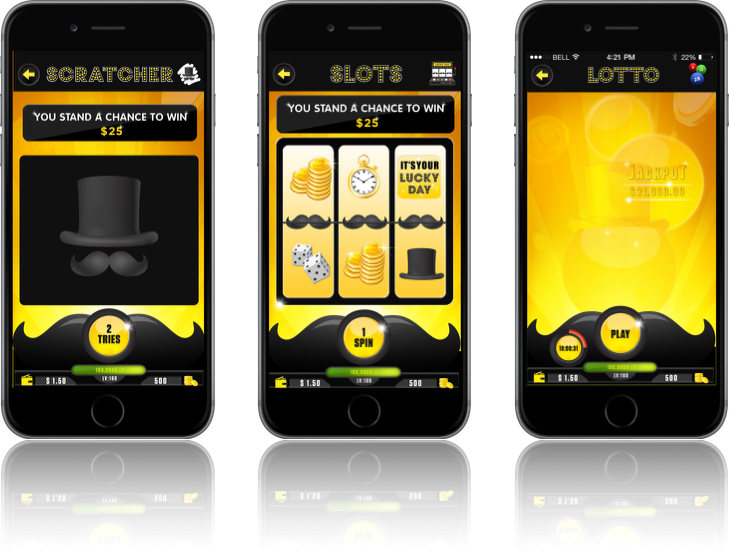Startup Founder Makes His Own Luck

“It came from my enjoyment of arcades,” Javaheri said. “What I loved so much about these places wasn’t necessarily the games, it was winning the prize, the money. So I thought to myself, ‘how can I create this kind of entertainment?’”
Lucky Day is not your typical mobile game. The application, available currently on iOS and Android, is comprised of several games that, with the support of advertising, offer players the chance to win cash prizes. According to Javaheri, there’s a winner every 1 to 2 minutes.
“Ads are put in contextually,” Javaheri said. “They actually enhance the gaming experience, because instead of just scratching off our logo, you’re scratching off [for example] a Coffee Bean logo. So it doesn’t hurt the app. It’s really direct advertising, it’s interactive, and it’s also targeted based on location and gender, so it’s a better way of advertising than on Facebook or Twitter, where you’re just hurting someone’s experience.”
“Imagine serving a restaurant and you have ten customers. All of a sudden you have 100,000 customers. It’s a different restaurant experience.” — Josh Javaheri on the rapid growth of his app
It seems that the appeal of risk-free prizes has grown the application’s user base rapidly. The game has been available for less than half a year and has roughly 250,000 users. Javaheri hopes to reach 1 million users by “early 2016” and expand the app’s reach even more broadly in the future. But growing a user base comes with its own challenges — not least of which is a current effort to find $2.5 million in funding for continued development and expansion.
“The goal is to replace the game section of the App Store and become the go-to place for games. Why would you play games for [nothing] when you can play and win real money?” Javaheri said.
Now a junior at the University of Southern California, Javaheri’s life has been consumed by growing his company. And according to him, that’s the way it should be.
“I don’t like slow business. I like things that move like wildfire,” Javaheri said. “I dove in. That’s been my life for two years, 24/7. And now tech and startups is what I want to do, probably for the rest of my life.”
Javaheri offered a simple piece of advice for college students considering starting a business: “just start.”
“Come up with something, start, change it, design it, make it, show it to people, get advice,” Javaheri said. “The number one thing is execution. […] There’s way more behind an app than the icon you see on your screen. You just have to be confident, you just have to go do it. If I can make free money work, anything can work. Just go for it.”
Reach Staff Reporter James Tyner here or on Twitter @jamestyner_.



